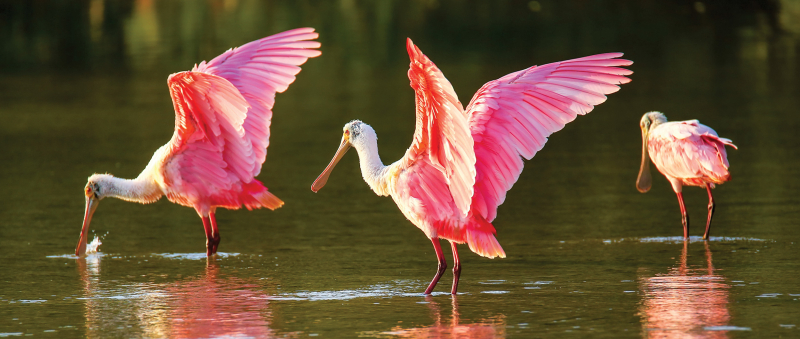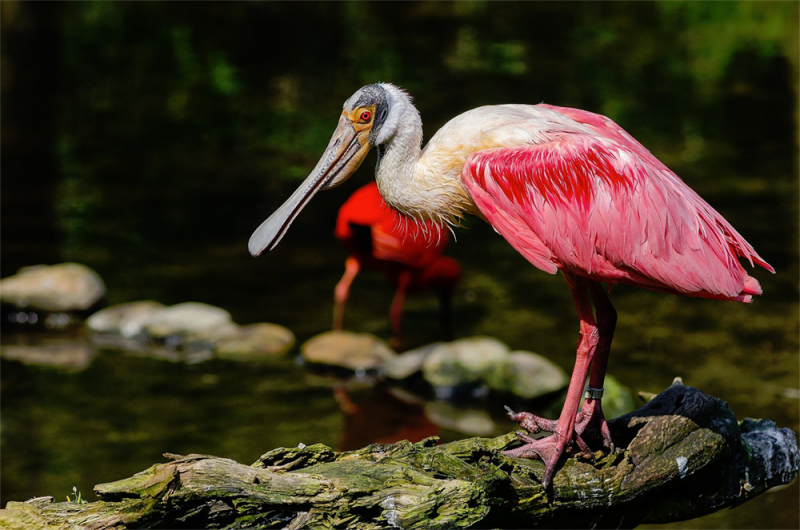Roseate Spoonbill

The Roseate Spoonbill (Platalea ajaja) is a gregarious wading bird of the ibis and spoonbill family, Threskiornithidae. It is a resident breeder in both South and North America. This species feeds in shallow fresh or coastal waters by swinging its bill from side to side as it steadily walks through the water, often in groups. The spoon-shaped bill allows it to sift easily through mud. It feeds on crustaceans, aquatic insects, frogs, newts, and very small fish ignored by larger waders.
The roseate spoonbill measures 71–86 cm in length, with a wingspan of 120–133 cm, and weighs 1.2–1.8 kg. Adults have a deep pink color with a naked greenish head (which turns golden buff while breeding) and a white neck, back, and breast (which has a tuft of pink feathers in the center when breeding). The invoice is gray. No discernible sexual dimorphism exists. Similar to the American flamingo, canthaxanthin, a carotenoid pigment, is what gives them their pink color. Astaxanthin, a different carotenoid, is also deposited in body and flight feathers. Depending on the age, whether or not they have been bred, and the region, the colors can range from pale pink to vivid magenta. Spoonbills fly with their necks extended, unlike herons.











